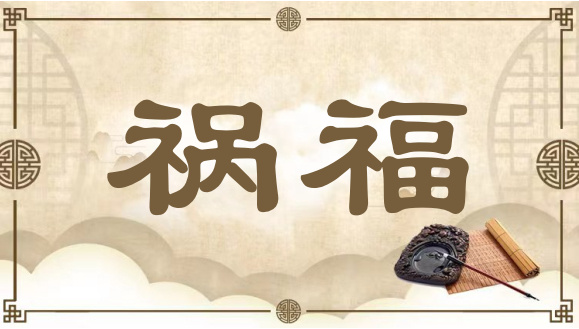祸福
Fortune and Misfortune

灾祸与福祉。“祸福”指对人具有不同利害影响的事情或其导致的结果。“祸”指对人具有危害的灾祸,“福”指给人带来好处的福祉。一般而言,人们会追求福祉而避免灾祸。为此,人们也会探究“祸福”产生的原因。有人认为,“祸福”是上天对人的赏罚,或是命运的限定,非人力所能掌控;也有人主张,“祸福”皆取决于人自身的言行。此外,也有人强调,应超越对祸福的计较,而行人所当为之事。
Huofu (祸福) refers to things that have good or harmful impacts on people or the results that they may cause. Fu (福) refers to good fortune that benefits people while huo (祸) refers to disasters that harm humans. Generally speaking, people pursue good fortune while avoiding misfortune. Therefore, they also explore the reasons for the occurrence of good fortune and misfortune. Some people believe that fortune and misfortune are rewards or punishments from heaven or limitations imposed by destiny that are beyond human control. Others advocate that fortune and misfortune depend on people's own words and deeds. In addition, some emphasize that people should go beyond calculating fortune and misfortune and just do what they should do.
引例 Citations:
◎祸兮,福之所倚;福兮,祸之所伏。(《老子·五十八章》)
灾祸是福祉所倚赖的地方,福祉是灾祸所潜藏的地方。
Fortune lies beside misfortune; misfortune lurks within fortune. (Laozi)
◎苟利国家生死以,岂因祸福避趋之。(林则徐《赴戍登程口占示家人》其二)
如果有利于国家,以死而为之,岂会因为遭受灾祸而逃避。
I place my country's interests above my own life, and never consider fortune or misfortune in taking action. (Lin Zexu: Farewell to My Family on My Way to Exile)
推荐:教育部 国家语委
供稿:北京外国语大学 外语教学与研究出版社
责任编辑:钱耐安





